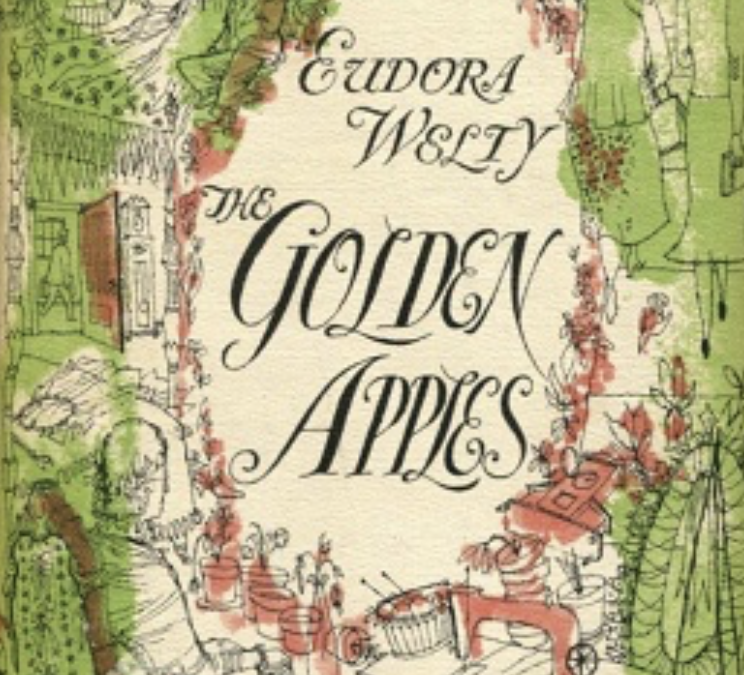“When do I stop doing research and start writing?” That question plagues writers of historical fiction. When you are working on a Ph.D. professors often answer that question this way, “When you pick up a book on your topic and you are familiar with most of the books listed in the bibliography, quit!” I use another rule, one I learned in a roundabout way from Eudora Welty.
Ms. Welty (pronounced “Miz” in “Southern”) was one of the many graces of attending Millsaps College.
As Writer-in-Residence she attended a seminar I was taking in my junior year. I was awed, meeting a woman who earned a living as a writer and, I was as charmed as a young woman could be when visiting an eccentric maiden aunt.
We had read Golden Apples in preparation for her attendance, so we discussed the book at length. As with most writers, the conversation eventually turned to the craft of writing. Ms. Welty said, (and you will have to imagine my paraphrased response in an elaborate, liquid, Southern drawl) “They ask me about my stories, ‘What happened next?’ Or they ask me ‘Why did she do that?’ And I tell them, ‘I don’t know. It’s as if I were a next door neighbor and I told you all I know.’”
It is important to understand that a next-door neighbor in the South is a person who knows you extremely well. Unlike in many parts of this country where I have lived, your next-door neighbor walks into your house with a holler rather than a knock, is the first person to bring a casserole when you are in need, taught you how to cook collard greens, and told you where to get a bargain on those new pillows on your couch. So, using the Southern definition of neighbor, I think Eudora Welty would say that you stop doing research on a historical novel and start writing when you know as much as your heroine’s next-door neighbor would have known.


